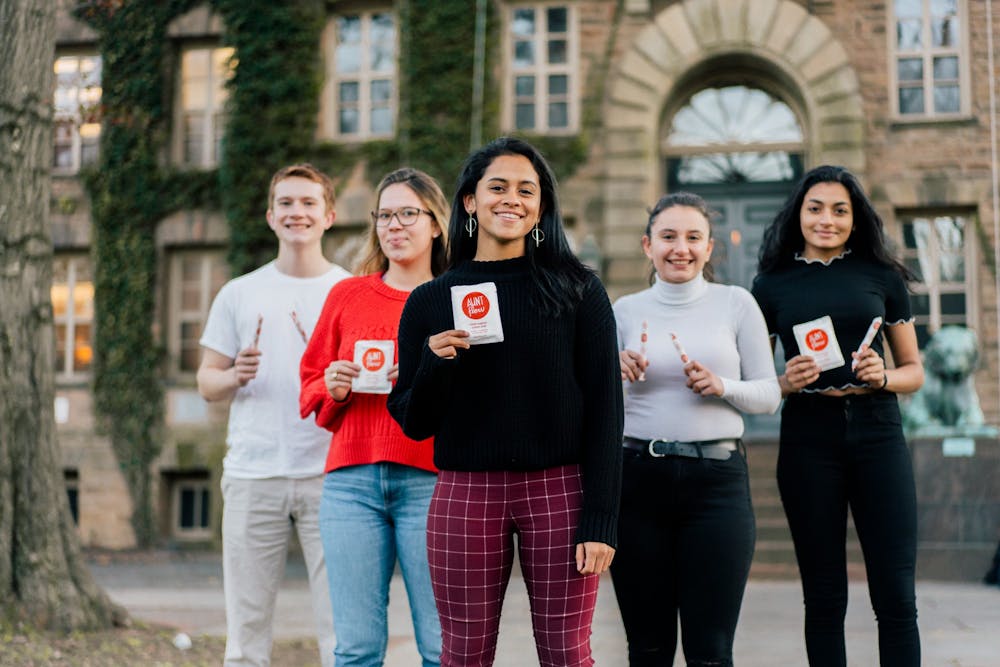On Feb. 19, Preeti Iyer ’20 and Rayyan Sarker ’22 of the Menstrual Products Task Force presented their goals to expand in the coming semester and introduced “Periodpalooza,” a four-day celebration of menstrual equity, at a meeting of the University Student Life Committee (USLC).
Last September, the task force was responsible for the implementation of free menstrual product dispensers in 56 bathrooms across campus.
The task force conducted a survey regarding the initiative, which it advertised by hanging QR-code flyers next to menstrual product dispensers. Of 276 respondents, 98 percent supported the products and wanted to see them expanded in additional bathrooms.
The survey also found that 85 percent of respondents found the products “useful for unexpected periods.” Furthermore, 8 percent stated they could not otherwise afford the products.
“It’s been great to see people openly talk about menstruation more,” said Iyer, the task force’s leader. “I feel like the campus as a whole has been more comfortable talking about menstruation, and hopefully it’s been a reinforcing factor seeing these [the dispensers] everywhere.”
Periodpalooza will run from Feb. 24–28 and will include a trivia table in Frist Campus Center on Monday, Feb. 24, opportunities to pack menstrual product bags for the homeless on Tuesday, Feb. 25, a menstrual equity panel on Thursday, Feb. 27, and a celebration on Friday, Feb. 28 at Campus Club to acknowledge accomplishments from the past year.
The Thursday panel discussion will feature Claire Coder, CEO of menstrual product brand and University partner organization Aunt Flow; Nadya Okamoto, founder of women’s health NGO PERIOD.; Maya Dusenbery, former editorial director at Feministing, a feminist blog; and Kaitlin Christine, founder of Gabbi, a start-up supporting women’s health advocacy.
The panel will be held at 6:30 p.m. in Robertson Hall 002.
Throughout 2020, the task force aims to add 20 to 40 new bathrooms on campus to the program, which offers free, organic menstrual products. Organizers have also begun efforts to potentially install the product dispensers in eating clubs and residential colleges.
“No one should be more than three minutes from a bathroom with products stocked,” said Sarker, explaining how the group determined which buildings should receive the products.
Iyer discussed the task force’s goal of influencing national policy with regards to tampon taxes. The group has sought to help introduce dispensers in regions of the country where conservative state and local governments may resist such efforts.
“Princeton has a lot of influence on the national scale, so hopefully a policy program like this and having a policy team in place at this school will get some of that reach, too,” Iyer said.

“People have been talking about menstruation in a less stigmatized, more open, liberal way,” she continued.
“We’re hoping to take that further by now looking forward to the field of menstrual equity and women’s health and of how we can intersect that with the private sector and entrepreneurship.”








